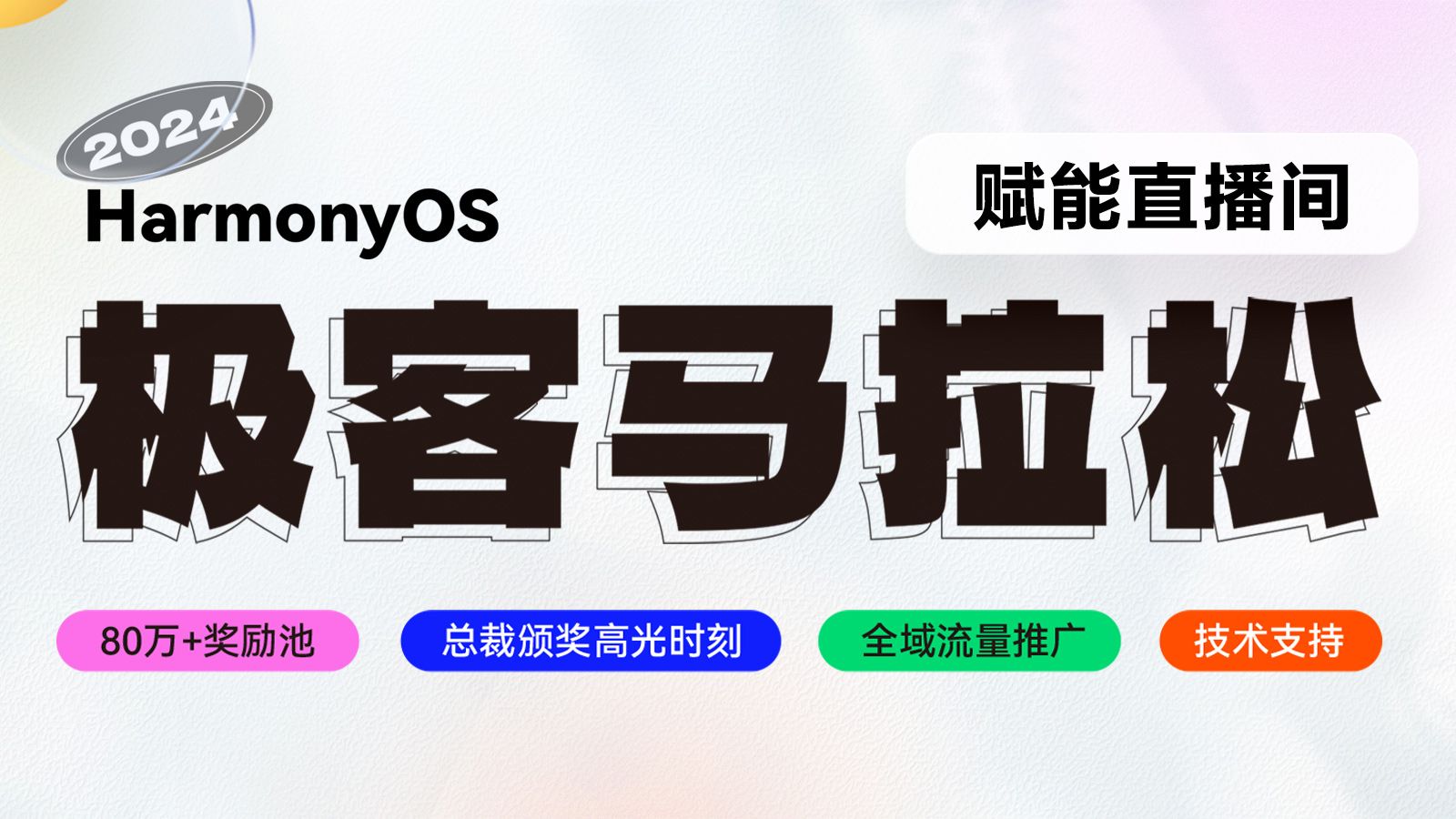STS创建Spring Boot项目实战(Rest接口、数据库、用户认证、分布式Token JWT、Redis操作、日志和统一异常处理)
1、新建工程2、选择打包方式,这边可以选择为打包为Jar包,或者传统的打包为War包3、选择开发过程中使用到的技术,这边我选择的是Rest Repositories4、新建测试用Controller 文件内容如下[java] viewplain copy
1.项目创建
1、新建工程
2、选择打包方式,这边可以选择为打包为Jar包,或者传统的打包为War包
3、选择开发过程中使用到的技术,这边我选择的是Rest Repositories
4、新建测试用Controller
文件内容如下
5、以Srping Boot App 方式运行
正常运行后控制台如下
6、测试运行
至此,一个最简单的hello world的工程创建运行完成
7、打包部署
7.1 打包为可运行jar包
使用mvn package 进行打包
然后run ,运行成功后如下生成jar包
7.2 打包为传统的war包
当第2步中选择的打包方式为war时,执行7.1中mvn package时,生成的包就是war包
运行war包跟运行jar包一样,找到war包所在目录,注解运行war包
D:\new_tech\spring-suite-tool\workspace\workspace1\demo1\target>java -jar demo1-0.0.1-SNAPSHOT.war
访问服务接口: localhost:8080/greeting
2.代码实现连接数据实现Rest接口和Basic 基础认证
<dependency>
<groupId>org.projectlombok</groupId>
<artifactId>lombok</artifactId>
</dependency>
<!-- 使用MySQL数据库,并用Spring Data JPA来作为数据库访问 -->
<dependency>
<groupId>org.springframework.boot</groupId>
<artifactId>spring-boot-starter-data-jpa</artifactId>
</dependency>
<dependency>
<groupId>mysql</groupId>
<artifactId>mysql-connector-java</artifactId>
</dependency>
/*
* Filter实现简单的Http Basic 认证
*/
@Component
@WebFilter(filterName = "httpBasicAuthorizedFilter", urlPatterns="/user/*")
public class HttpBasicAuthorizeFilter implements Filter {@Bean
public FilterRegistrationBean filterRegistrationBean() {
FilterRegistrationBean registrationBean = new FilterRegistrationBean();
HttpBasicAuthorizeFilter httpBasicFilter = new HttpBasicAuthorizeFilter();
registrationBean.setFilter(httpBasicFilter);
List<String> urlPatterns = new ArrayList<String>();
urlPatterns.add("/user/*");
registrationBean.setUrlPatterns(urlPatterns);
return registrationBean;
} 
Authorization: Basic dGVzdDp0ZXN0
dGVzdDp0ZXN0 为 test:test 经过base64编码后的结果
如果未添加认证信息或者认证信息错误,返回没有权限的错误信息
当认证信息正确,返回请求结果
3.自定义Properties解析类和分布式Token JWT用户校验
1.自定义Properties解析类的使用规则
jwt.info.clientId=098f6bcd4621d373cade4e832627b4f6
jwt.info.base64Secret=MDk4ZjZiY2Q0NjIxZDM3M2NhZGU0ZTgzMjYyN2I0ZjY=
jwt.info.name=restapiuser
jwt.info.expiresSecond=172800package com.jay.properties;
import org.springframework.boot.context.properties.ConfigurationProperties;
/*
* 自定义配置文件的解析类
*/
@ConfigurationProperties(prefix = "jwt.info", locations = "classpath:/config/jwt.properties")
public class JwtInfo {
private String clientId;
private String base64Secret;
private String name;
private int expiresSecond;
public String getClientId() {
return clientId;
}
public void setClientId(String clientId) {
this.clientId = clientId;
}
public String getBase64Secret() {
return base64Secret;
}
public void setBase64Secret(String base64Secret) {
this.base64Secret = base64Secret;
}
public String getName() {
return name;
}
public void setName(String name) {
this.name = name;
}
public int getExpiresSecond() {
return expiresSecond;
}
public void setExpiresSecond(int expiresSecond) {
this.expiresSecond = expiresSecond;
}
}
package com.jay;
import org.springframework.boot.SpringApplication;
import org.springframework.boot.autoconfigure.SpringBootApplication;
import org.springframework.boot.autoconfigure.security.oauth2.resource.ResourceServerProperties.Jwt;
import org.springframework.boot.context.properties.EnableConfigurationProperties;
import org.springframework.boot.web.servlet.ServletComponentScan;
import com.jay.properties.JwtInfo;
@SpringBootApplication
@EnableConfigurationProperties(JwtInfo.class) //加载自定义的properties解析类
public class Demo1Application {
public static void main(String[] args) {
SpringApplication.run(Demo1Application.class, args);
}
}
package com.jay.controller;
import org.springframework.beans.factory.annotation.Autowired;
import org.springframework.web.bind.annotation.RequestMapping;
import org.springframework.web.bind.annotation.RequestMethod;
import org.springframework.web.bind.annotation.RestController;
import com.jay.properties.JwtInfo;
import com.jay.vo.ResultMsg;
import com.jay.vo.ResultStatusCode;
@RestController
@RequestMapping("/jwt")
public class JwtInfoController {
@Autowired
private JwtInfo jwtInfo;
@RequestMapping(value = "/info", method = RequestMethod.GET)
public Object getJwtInfo() {
return new ResultMsg<JwtInfo>(true, ResultStatusCode.OK.getErrorCode(), ResultStatusCode.OK.getErrorMsg(), jwtInfo);
}
}
5.效果展示

2.使用分布式token JWT进行用户认证
jwt(json web token)
用户发送按照约定,向服务端发送 Header、Payload 和 Signature,并包含认证信息(密码),验证通过后服务端返回一个token,之后用户使用该token作为登录凭证,适合于移动端和api
jwt使用流程
<!-- JWT Json Web Token 依赖 -->
<dependency>
<groupId>io.jsonwebtoken</groupId>
<artifactId>jjwt</artifactId>
<version>0.7.0</version>
</dependency>2.编写Jwt解析类和Jwt过滤器
package com.jay.util.jwt;
import java.security.Key;
import java.util.Date;
import javax.crypto.spec.SecretKeySpec;
import javax.xml.bind.DatatypeConverter;
import io.jsonwebtoken.Claims;
import io.jsonwebtoken.JwtBuilder;
import io.jsonwebtoken.Jwts;
import io.jsonwebtoken.SignatureAlgorithm;
/*
* 构造及解析jwt的工具类
*/
public class JwtHelper {
public static Claims parseJWT(String jsonWebToken, String base64Security){
try
{
Claims claims = Jwts.parser()
.setSigningKey(DatatypeConverter.parseBase64Binary(base64Security))
.parseClaimsJws(jsonWebToken).getBody();
return claims;
}
catch(Exception ex)
{
return null;
}
}
/**
* 生成token
*
* @author hetiewei
* @date 2016年10月18日 下午2:51:38
* @param name keyId
* @param userId
* @param role
* @param audience 接收者
* @param issuer 发行者
* @param TTLMillis 过期时间(毫秒)
* @param base64Security
* @return
*/
public static String createJWT(String name, String userId, String role,
String audience, String issuer, long TTLMillis, String base64Security)
{
SignatureAlgorithm signatureAlgorithm = SignatureAlgorithm.HS256;
long nowMillis = System.currentTimeMillis();
Date now = new Date(nowMillis);
//生成签名密钥
byte[] apiKeySecretBytes = DatatypeConverter.parseBase64Binary(base64Security);
Key signingKey = new SecretKeySpec(apiKeySecretBytes, signatureAlgorithm.getJcaName());
//添加构成JWT的参数
JwtBuilder builder = Jwts.builder().setHeaderParam("typ", "JWT")
.claim("role", role)
.claim("unique_name", name)
.claim("userid", userId)
.setIssuer(issuer)
.setAudience(audience)
.signWith(signatureAlgorithm, signingKey);
//添加Token过期时间
if (TTLMillis >= 0) {
long expMillis = nowMillis + TTLMillis;
Date exp = new Date(expMillis);
builder.setExpiration(exp).setNotBefore(now);
}
//生成JWT
return builder.compact();
}
}
package com.jay.filter;
import java.io.IOException;
import javax.servlet.Filter;
import javax.servlet.FilterChain;
import javax.servlet.FilterConfig;
import javax.servlet.ServletException;
import javax.servlet.ServletRequest;
import javax.servlet.ServletResponse;
import javax.servlet.http.HttpServletRequest;
import javax.servlet.http.HttpServletResponse;
import org.springframework.beans.factory.annotation.Autowired;
import org.springframework.web.context.support.SpringBeanAutowiringSupport;
import com.fasterxml.jackson.databind.ObjectMapper;
import com.jay.properties.JwtInfo;
import com.jay.util.jwt.JwtHelper;
import com.jay.vo.ResultMsg;
import com.jay.vo.ResultStatusCode;
/*
* 用于JWT认证的过滤器
*/
public class JwtAuthorizeFilter implements Filter{
/*
* 注入配置文件类
*/
@Autowired
private JwtInfo jwtInfo;
@Override
public void destroy() {
}
@Override
public void doFilter(ServletRequest request, ServletResponse response, FilterChain chain)
throws IOException, ServletException {
ResultMsg<Object> resultMsg;
HttpServletRequest httpRequest = (HttpServletRequest)request;
String auth = httpRequest.getHeader("Authorization");
if ((auth != null) && (auth.length() > 7))
{
String HeadStr = auth.substring(0, 6).toLowerCase();
if (HeadStr.compareTo("bearer") == 0)
{
auth = auth.substring(7, auth.length());
if (JwtHelper.parseJWT(auth, jwtInfo.getBase64Secret()) != null)
{
chain.doFilter(request, response);
return;
}
}
}
//验证不通过
HttpServletResponse httpResponse = (HttpServletResponse) response;
httpResponse.setCharacterEncoding("UTF-8");
httpResponse.setContentType("application/json; charset=utf-8");
httpResponse.setStatus(HttpServletResponse.SC_UNAUTHORIZED);
//将验证不通过的错误返回
ObjectMapper mapper = new ObjectMapper();
resultMsg = new ResultMsg<Object>(true, ResultStatusCode.INVALID_TOKEN.getErrorCode(), ResultStatusCode.INVALID_TOKEN.getErrorMsg(), null);
httpResponse.getWriter().write(mapper.writeValueAsString(resultMsg));
return;
}
@Override
public void init(FilterConfig filterConfig) throws ServletException {
SpringBeanAutowiringSupport.processInjectionBasedOnServletContext(this, filterConfig.getServletContext());
}
}
package com.jay.config;
import java.util.ArrayList;
import java.util.List;
import org.springframework.boot.context.embedded.FilterRegistrationBean;
import org.springframework.context.annotation.Bean;
import org.springframework.context.annotation.Configuration;
import com.jay.filter.JwtAuthorizeFilter;
/*
* 注册jwt认证过滤器
*/
@Configuration
public class JwtConfig {
/*
* 注册过滤器类和过滤的url
*/
@Bean
public FilterRegistrationBean basicFilterRegistrationBean(){
FilterRegistrationBean registrationBean = new FilterRegistrationBean();
JwtAuthorizeFilter filter = new JwtAuthorizeFilter();
registrationBean.setFilter(filter);
List<String> urlPatterns = new ArrayList<>();
urlPatterns.add("/user/*");
registrationBean.setUrlPatterns(urlPatterns);
return registrationBean;
}
}



4.Redis + Cookie 机制,进行验证码的校验
<!-- 整合redis -->
<dependency>
<groupId>org.springframework.boot</groupId>
<artifactId>spring-boot-starter-redis</artifactId>
</dependency>
<!-- 第三方验证码库 -->
<dependency>
<groupId>cn.apiclub.tool</groupId>
<artifactId>simplecaptcha</artifactId>
<version>1.2.2</version>
</dependency>##Redis配置
spring.redis.database=1
spring.redis.host=localhost
#spring.redis.password=password
spring.redis.port=6379
spring.redis.timeout=2000
spring.redis.pool.max-idle=8
spring.redis.pool.min-idle=0
spring.redis.pool.max-active=8
spring.redis.pool.max-wait=-1package com.jay.config;
import org.springframework.context.annotation.Bean;
import org.springframework.context.annotation.Configuration;
import org.springframework.data.redis.connection.RedisConnectionFactory;
import org.springframework.data.redis.core.RedisTemplate;
import org.springframework.data.redis.core.StringRedisTemplate;
import org.springframework.data.redis.serializer.Jackson2JsonRedisSerializer;
import com.fasterxml.jackson.annotation.JsonAutoDetect;
import com.fasterxml.jackson.annotation.PropertyAccessor;
import com.fasterxml.jackson.databind.ObjectMapper;
@Configuration
public class RedisConfig {
// 定义Redis模板
@Bean
public RedisTemplate<String, String> redisTemplate(RedisConnectionFactory factory) {
StringRedisTemplate template = new StringRedisTemplate(factory);
// 设置序列化工具, 这样缓存的Bean就不需要再试下Serializable接口
setSerrializer(template);
template.afterPropertiesSet();
return template;
}
// 设置序列化
private void setSerrializer(StringRedisTemplate template) {
Jackson2JsonRedisSerializer jackson2JsonRedisSerializer = new Jackson2JsonRedisSerializer(Object.class);
ObjectMapper om = new ObjectMapper();
om.setVisibility(PropertyAccessor.ALL, JsonAutoDetect.Visibility.ANY);
om.enableDefaultTyping(ObjectMapper.DefaultTyping.NON_FINAL);
jackson2JsonRedisSerializer.setObjectMapper(om);
template.setValueSerializer(jackson2JsonRedisSerializer);
}
}
package com.jay.controller;
import java.io.ByteArrayOutputStream;
import java.io.IOException;
import java.util.UUID;
import java.util.concurrent.TimeUnit;
import javax.imageio.ImageIO;
import javax.servlet.http.Cookie;
import javax.servlet.http.HttpServletRequest;
import javax.servlet.http.HttpServletResponse;
import org.springframework.beans.factory.annotation.Autowired;
import org.springframework.data.redis.core.RedisTemplate;
import org.springframework.http.HttpRequest;
import org.springframework.http.MediaType;
import org.springframework.stereotype.Controller;
import org.springframework.web.bind.annotation.PathVariable;
import org.springframework.web.bind.annotation.RequestMapping;
import org.springframework.web.bind.annotation.RequestMethod;
import org.springframework.web.bind.annotation.ResponseBody;
import com.jay.util.CookieUtils;
import com.jay.vo.ResultMsg;
import com.jay.vo.ResultStatusCode;
import cn.apiclub.captcha.Captcha;
import cn.apiclub.captcha.backgrounds.GradiatedBackgroundProducer;
import cn.apiclub.captcha.gimpy.FishEyeGimpyRenderer;
import io.swagger.annotations.ApiOperation;
@Controller
@RequestMapping("/redis")
public class RedisCaptchaController {
@Autowired
private RedisTemplate<String, String> redisTemplate;
private static int captchaExpires = 3 * 60; // 超时时间3min,验证码超时,自动冲redis中删除
private static int captchaW = 200;
private static int captchaH = 60;
private static String cookieName = "CaptchaCode";
@RequestMapping(value = "getcaptcha", method = RequestMethod.GET, produces = MediaType.IMAGE_PNG_VALUE)
public @ResponseBody byte[] getCaptcha(HttpServletResponse response) {
// 生成验证码
String uuid = UUID.randomUUID().toString();
Captcha captcha = new Captcha.Builder(captchaW, captchaH).addText()
.addBackground(new GradiatedBackgroundProducer()).gimp(new FishEyeGimpyRenderer()).build();
// 将验证码以<key,value>形式缓存到redis
redisTemplate.opsForValue().set(uuid, captcha.getAnswer(), captchaExpires, TimeUnit.SECONDS);
// 将验证码key,及验证码的图片返回
Cookie cookie = new Cookie(cookieName, uuid);
response.addCookie(cookie);
ByteArrayOutputStream bao = new ByteArrayOutputStream();
try {
ImageIO.write(captcha.getImage(), "png", bao);
return bao.toByteArray();
} catch (IOException e) {
return null;
}
}
/*
* 说明:
* 1.captchaCode来自客户端的Cookie,在访问时,通过服务端设置
* 2.captcha是用户填写的验证码,将用户填写的验证码和通过captchaCode从redis中获取的验证码进行对比即可
*
*/
@ApiOperation(value = "验证码校验")
@RequestMapping(value = "/captcha/check/{captcha}")
@ResponseBody
public ResultMsg<Object> checkCaptcha(@PathVariable("captcha") String captcha, HttpServletRequest request){
String captchaCode = CookieUtils.getCookie(request, cookieName);
ResultMsg<Object> result;
try{
if (captcha == null)
{
throw new Exception();
}
//redis中查询验证码
String captchaValue = redisTemplate.opsForValue().get(captchaCode);
if (captchaValue == null) {
throw new Exception();
}
if (captchaValue.compareToIgnoreCase(captcha) != 0) {
throw new Exception();
}
//验证码匹配成功,redis则删除对应的验证码
redisTemplate.delete(captchaCode);
return new ResultMsg<Object>(true, ResultStatusCode.OK.getErrorCode(), ResultStatusCode.OK.getErrorMsg(), null);
}catch (Exception e) {
result = new ResultMsg<Object>(false, ResultStatusCode.INVALID_CAPTCHA.getErrorCode(), ResultStatusCode.INVALID_CAPTCHA.getErrorMsg(), null);
}
return result;
}
}


更多推荐
 已为社区贡献1条内容
已为社区贡献1条内容
























所有评论(0)